Unleash the Power of Multi-Cloud Management with MQloud
By MQloud Product Marketing
Cloud migration has become a strategic move for organizations in Southeast Asia eager to take advantage of the flexibility, scalability and cost savings that cloud environments have to offer.
In Thailand as a fast-growing cloud market, for example, AWS launched the AWS Asia Pacific (Thailand) Region, committing over US$5bn to develop cloud infrastructure in the country in January 2025. Alphabet Inc.’s Google also announced plans in October 2024 to invest US$1bn in the nation to establish a data center and cloud infrastructure.
However, as more companies transition to multi-cloud environments as part of their cloud migration strategy—leveraging platforms such as AWS, Google Cloud Platform (GCP), and Microsoft Azure—managing this complex environment has become increasingly challenging.
A well-executed multi-cloud strategy, often complemented by on-premises or local data center colocation, offers tremendous benefits in scalability, performance, data compliance, and business continuity. But with these benefits come new challenges: operational complexity, interoperability issues, and heightened security concerns.
This blog will explore the benefits of multi-cloud management, the challenges organizations face, and how MQloud, an intuitive, user-centric multi-cloud management platform, simplifies the entire process, allowing businesses to focus on innovation rather than juggling cloud operations.
Why Multi-Cloud Strategy?
Businesses are increasingly using multiple cloud services from different providers, and it’s easy to see why. This strategy helps avoid dependency on a single vendor, and boosts resilience by spreading workloads and resources across various platforms.
A multi-cloud strategy also allows businesses to allocate workloads and resources across different platforms ensuring that they can maximize efficiency while tailoring their cloud infrastructure to specific business needs. Moreover, a multi-cloud approach allows businesses to switch between platforms to avoid vendor lock-in and optimize resources.
Challenges Associated with Multi-Cloud Environments
Though a multi-cloud strategy offers significant advantages, managing multiple clouds can be complex in terms of operations, performance monitoring, and cost management.
Setup and Operations
Handling different platforms, tools, and environments burdens IT teams. Each cloud service has its own interfaces, APIs, and security configurations, increasing the potential for human error and complicating daily operations. Ensuring interoperability and maintaining consistent security across platforms also introduces additional risks.
Performance Monitoring
Optimizing performance across various infrastructures requires sophisticated tools and specialized expertise. IT teams must monitor performance in real-time, address bottlenecks, and ensure smooth operations across cloud environments.
Cost Management
While leveraging multiple cloud providers can offer cost advantages, it complicates expense tracking and optimization. Businesses need a unified approach to monitor usage, control costs, and prevent unexpected charges across different providers.
The Importance of Multi-Cloud Management Tools
Given the complexity of managing multiple cloud environments, effective multi-cloud management tools like MQloud become essential. MQloud simplifies operations by seamlessly integrating services from AWS, GCP, Azure, and others into a single, user-friendly platform.
MQloud streamlines setup, ensures smooth connectivity, consolidates billing, and simplifies permission management, making it far easier for businesses to efficiently oversee and optimize their entire cloud infrastructure.
Key Features
Unified Interface
Instead of manually navigating different interfaces for AWS, Azure, or GCP, its unified platform provides a single, unified interface where users can initiate and manage accounts for multiple cloud providers from one dashboard.
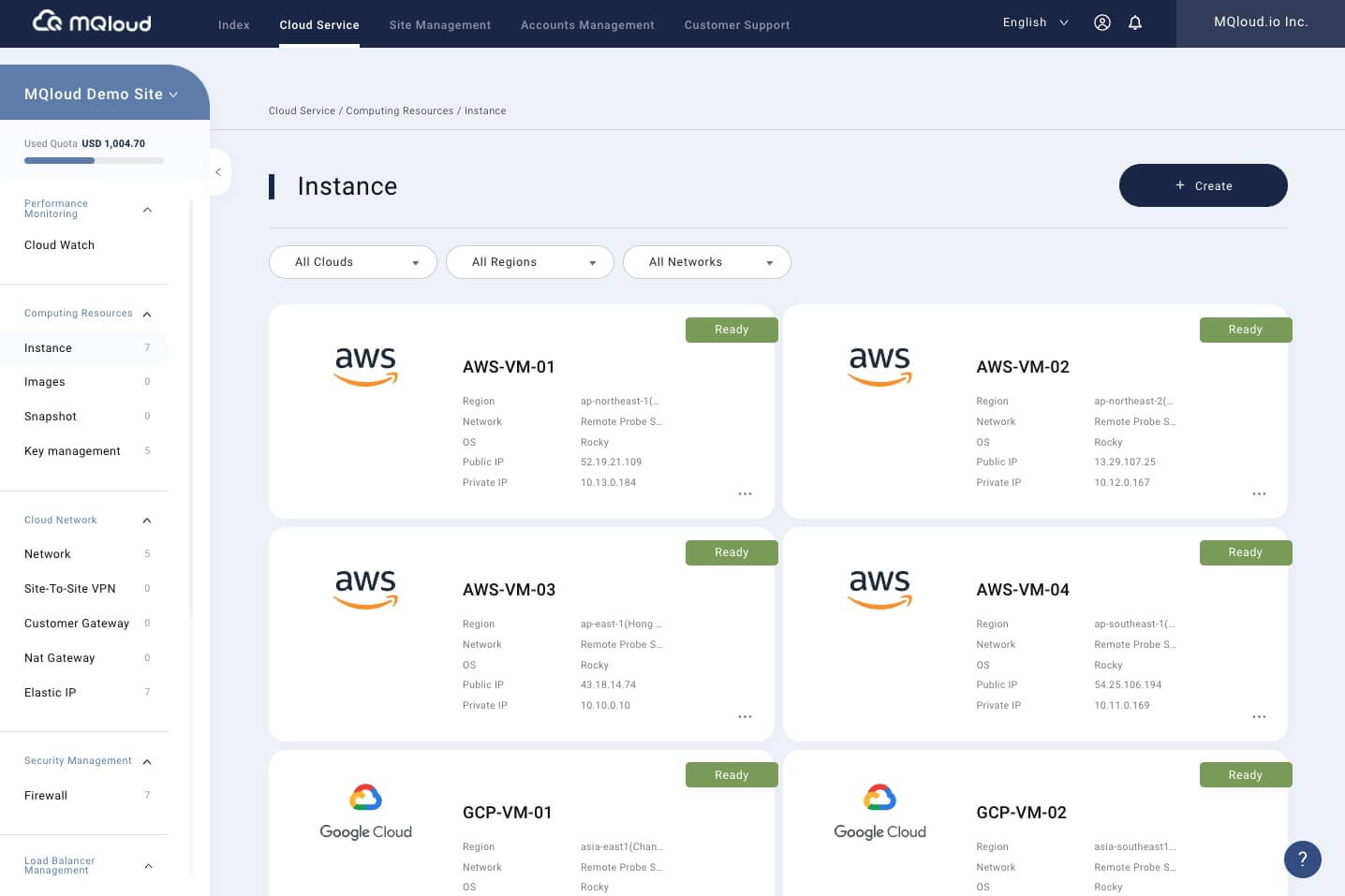
Cross-Cloud Connection
The platform facilitates cross-cloud integration, allowing businesses to deploy services across different clouds ensuring business continuity.
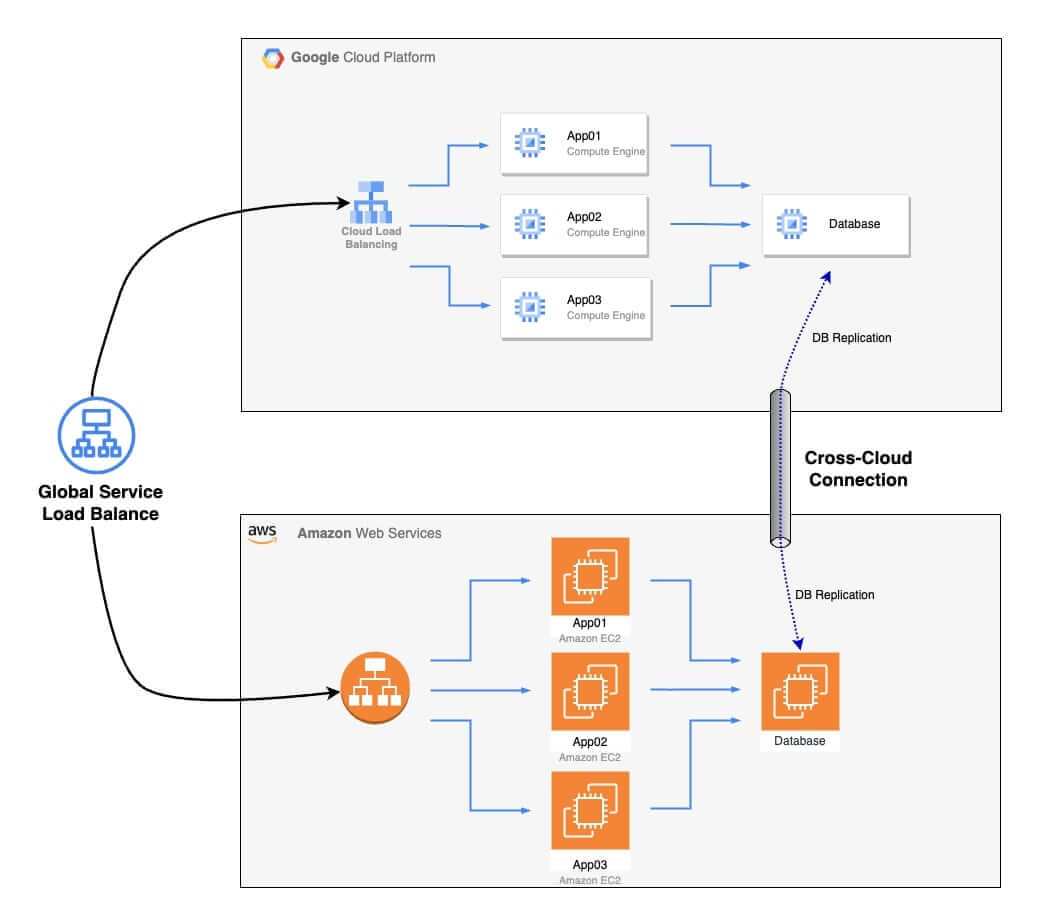
Automated Provisioning
The platform can automate account creation by pre-configuring settings such as access controls, security policies, and compliance requirements for new accounts across various cloud services, reducing manual steps and errors.
Standardized Configuration
The platform enforces standardized security policies, resource allocation, and governance rules during the account opening process, ensuring consistency across all accounts.
Simplified Billing Setup
The platform consolidates billing information, making it easier to set up accounts and track costs from the start, without having to configure separate billing details for each provider.
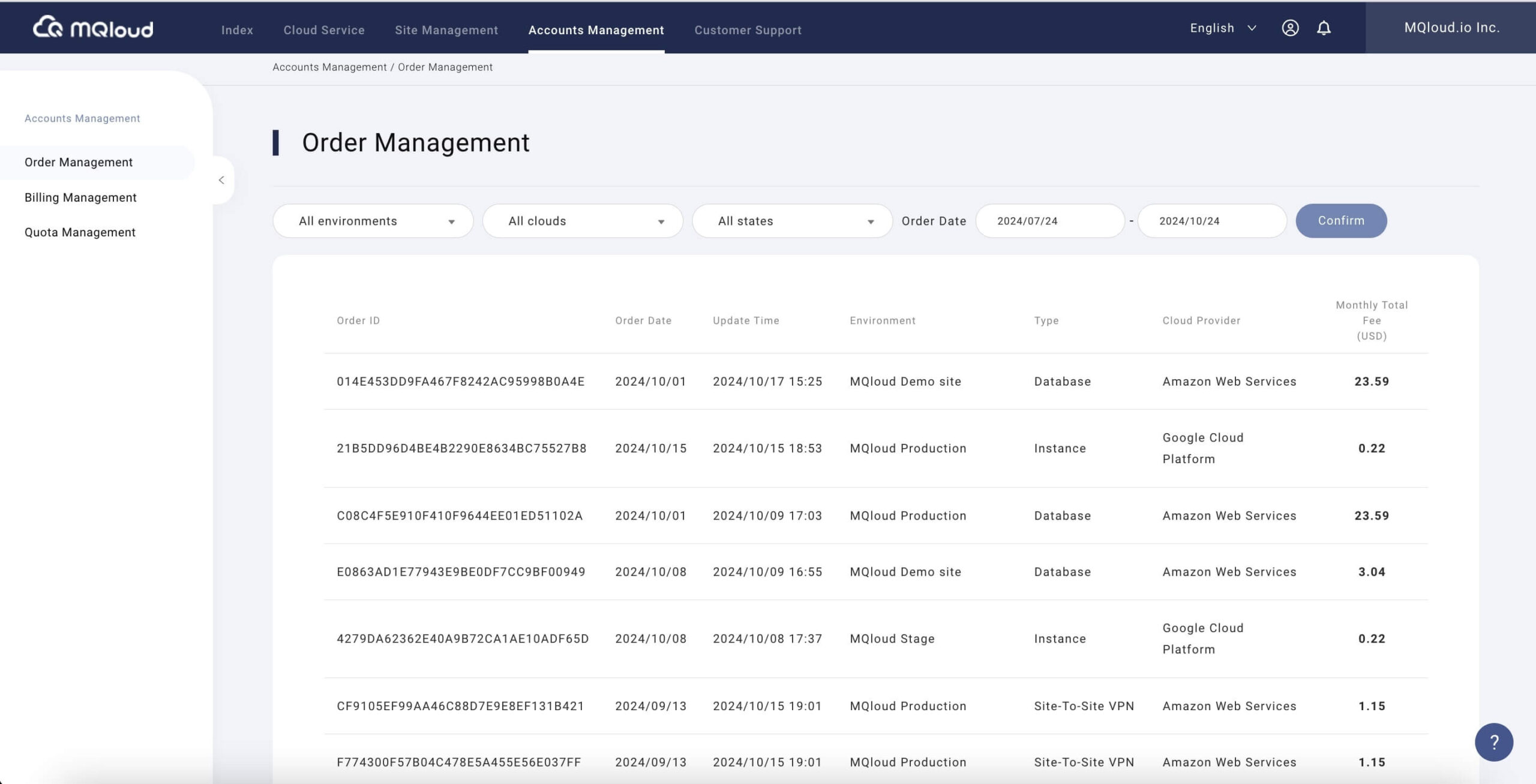
Role-Based Access and Permissions
The platform can pre-configure role-based access controls (RBAC) across new accounts, ensuring that the right users have appropriate access levels and quota authorization without the need to manually adjust permissions for each cloud provider.
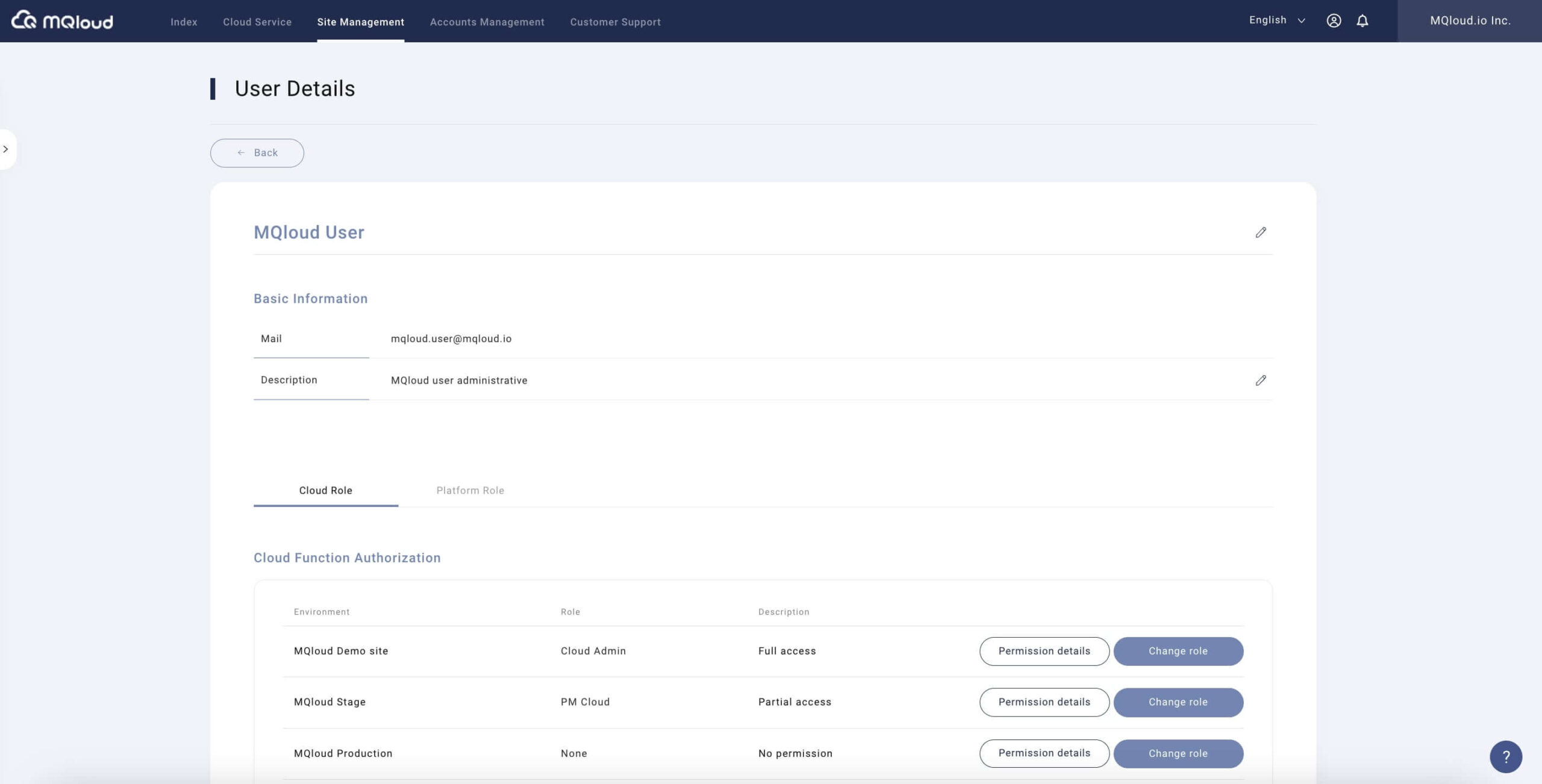
Granular Performance Monitoring
An integrated dashboard provides granular visibility into real-time insights across all cloud environments, allowing businesses to track and optimize resource usage and application performance from just one platform.
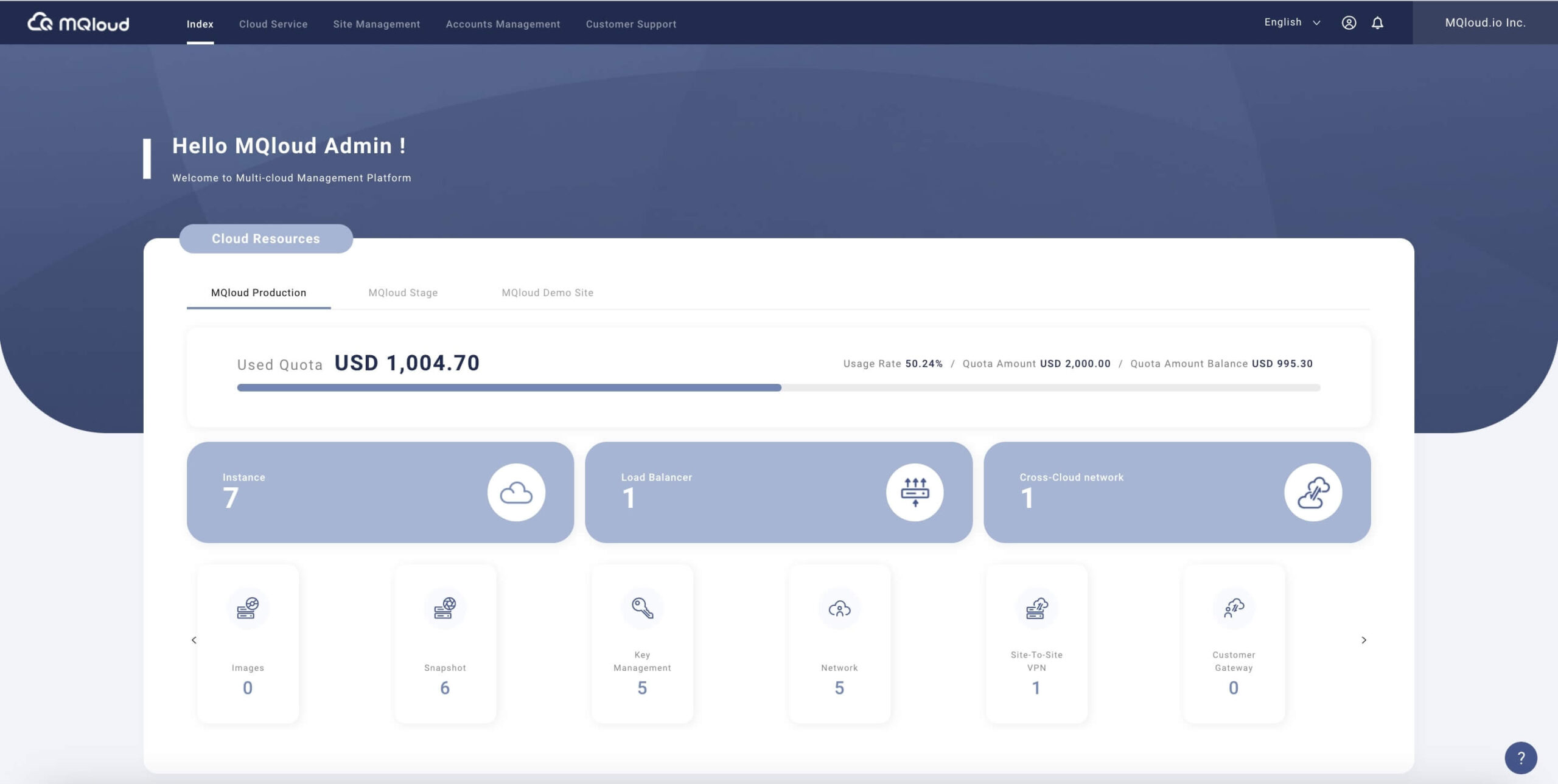
Why MQloud Represents the Future of Multi-Cloud Management?
As businesses continue to scale and migrate to multi-cloud environments, managing cloud services across multiple platforms becomes increasingly challenging.
MQloud offers a game-changing solution that simplifies cloud management, optimizes costs, and provides seamless connectivity across AWS, GCP, and Azure. Its integration, simplification, and connectivity pillars ensure that businesses can focus on innovation, secure in the knowledge that their cloud operations are being managed effectively.
Start your journey with MQloud today and experience the simplicity of unified multi-cloud management.
